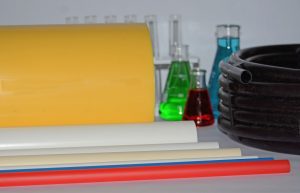
New PPI Report Details Chemical Resistance Capabilities
August 3, 2021 | By Logan Caswell
The report provides information about the effects various chemicals can have on plastic piping materials.

(Photo provided by PPI)
The Plastics Pipe Institute (PPI) has released a new report that details the chemical resistance capabilities for pipe made from various thermoplastic, thermoset, and composite (multi-layered) plastic materials.
Chemical Resistance of Plastic Piping Materials, TR-19 – provides information about the effects various chemicals can have on plastic piping materials. Different applications include potable water, hydronics, sanitary sewer, gas and others. The free report is available here: plasticpipe.org
“Plastic pipe and fitting materials are generally resistant to attack from many chemicals,” stated David Fink, president of PPI. “This property makes them suitable for use in numerous fluid and gas conveyance applications. There are, however, certain chemicals that may damage plastic pipes, either through exposure on the outside of the pipe to chemicals, on the internal surface of the pipe during the transportation of such chemicals, or with exposure to inert fluids containing chemicals in various concentrations. Each material has a unique resistance to chemicals in various situations. The suitability of a pipe or fitting system for use in a particular fluid or gas application is a function of several factors, which are detailed in TR-19.”
Included in the report you will find sections on pipe and fitting materials, product design and joining systems, operating conditions and types of chemical attacks on plastics. It applies to pipe and fitting materials such as CPVC, HDPE, PA, PE-RT, PP-R, PP-RCT, PVC, and PEX.




